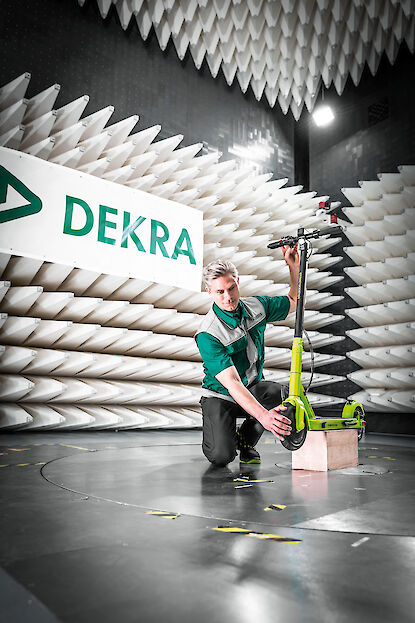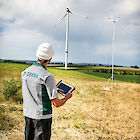Commitment
to the Common Good
Sustainable thinking and actions at DEKRA are not only reflected in targeted expert services for customers worldwide and numerous internal measures but also in the company’s diverse social engagement. As a signatory of the UN Global Compact, and thus part of the world’s largest initiative for sustainable and responsible corporate governance, DEKRA has long committed to the UN Sustainable Development Goals. The expert organization will further strengthen its social responsibility through a new Corporate Citizenship Policy. This guideline focuses on defining areas of support, such as education & science, culture, sports, social causes, environmental protection, and nature conservation, as well as establishing mechanisms for selecting and funding projects. Notable initiatives in 2023 included DEKRA’s first-ever participation in the World Climate Conference in Dubai (COP28).

For nearly 100 years, DEKRA has also been dedicated to road traffic safety—through regular vehicle inspections, accident analysis and research, crash tests, public relations, and participation in national and international committees. A key component of this commitment is the DEKRA Road Safety Report, published annually since 2008 in multiple languages, with changing focus topics. Furthermore, the expert organization has been promoting school safety for 20 years with the campaign “Safety Needs Brainpower”, which sensitizes first graders and distributes the popular red caps. Since the campaign’s launch in 2004, over 3.6 million caps have been distributed in Germany alone. International subsidiaries in countries like Italy, Sweden, Poland, Austria, the Czech Republic, Slovakia, Taiwan, and Brazil also participate in the initiative.
Through numerous other activities, such as actively contributing to research topics at state and supra-state levels, DEKRA supports the implementation of the Safe System Approach. One example is the collaboration in the field of micromobility. In a joint project with researchers from Université Gustave Eiffel in Marseille (France) and École de Technologie Supérieure in Montréal (Canada), a simulation model was developed to determine the likelihood of injuries in e-scooter collisions.


















































